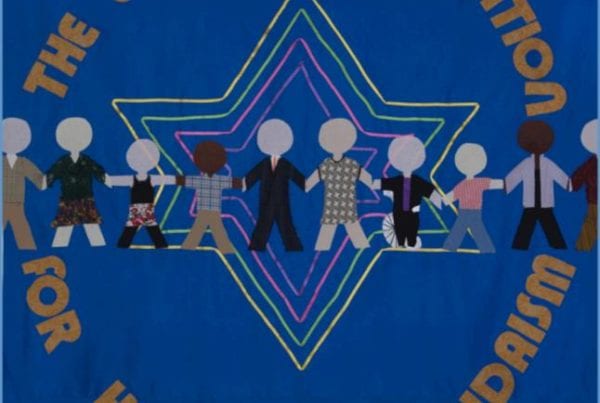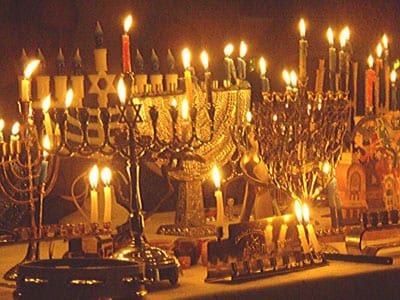Yom Kippur 1999
Alan Siege
Several years ago, it’s actually over 20, when I was a REALLY young man, I had a fight with a woman I was living with. I don’t remember what it was about, although I think it had something to do with my questioning her loyalty to me. She was very angry for whatever I said. Yet the fight didn’t last long. Her last words on the subject were “I’ll forgive you, but I’ll never forget.”
Now, it’s some years later; I’ve been asked to talk with you, the gathering for the City Congregation’s 1999 Yom Kippur program, and I find those words; floating back into my consciousness. I remember feeling relief at the first part of her statement and great puzzlement over the second. What was she trying to say? You’re O.K., but don’t get too comfortable? I still love you, but you’ve crossed a line? I’m not going to dwell on it, but it will always be there?
In all my years as a Jewish person, both before and after this event occurred, this idea of forgiveness had never come up. A flaw in my upbringing? Perhaps. A large gap in my Jewish education? Could be. As an adult, I’ve certainly had to address the many times in my life when I felt I failed myself as well as others. Yet, so much of the soul searching that occurred was about whether I had unrealistic expectations for myself or for the other person. Surprisingly, the subject of forgiveness didn’t come up in any of those many therapy sessions.
This whole question has gotten me wondering lately about how to proceed into my future. And once again, I return to her words, “I’ll forgive you, but I’ll never forget.” It makes sense and has turned out to be remarkably good advice. Let me explain.
Is not the issue that if you forgive someone you are letting them (or you) off the hook? Is forgiveness an exoneration of your deed or statement? For me, there are people in my life that forgiving them feels like I’m letting a guilty man (or woman) go free.
I suspect that this same feeling crops up for many people who have been hurt by family members or partners, but more significantly, it comes up when we think about acts of inhumanity committed by dictators and other madmen. How can we forgive someone who is personally responsible for the deaths of millions of innocent people?
With this question percolating in my brain, I recalled what someone else had to say on the subject. I once had the occasion to talk at length with the actor Ossie Davis, for an interview about his role in the 1995 Spike Lee film, “Get on the Bus.”
“It’s a matter of emphasis,” he said, “but oppressed peoples like blacks and I think sometimes Jews and others, have to exist in the crevices, . . . so our attitude toward ourselves and our approach to the whole meaning of ourselves and our lives can be small, but to us it’s of great consequence.”
Yet even with his keen sense of the “place” that disenfranchised people occupy, he felt compelled to see the goodness in what is universally repudiated.
“It would embarrass me,” he continued, “if I had to come up with a creature that I couldn’t find some way of embracing. I don’t care how reprehensible. There’s some umbilical connection that remains between me as a human being and the greatest of people and the most despicable of people. A part of my hatred of Hitler would have to be that there’s something in me that Hitler also represented and I must make sure to love or to hate the evil that I hate in the evil doer. That’s important to me.”
Davis attributed his worldview to the stories he heard as a child from his mother and father. His childhood in rural Georgia was during a time when the Ku Klux Klan was very active, when awful things happened, when you’d hear about someone you knew being lynched.
He went on to say, “This information was given to us as children by my Daddy and my Mamma in such a way that we could handle it and not be too upset, disturbed or threatened by it. Their view of the world never once blinked at the cruelty that was there, but somehow they knew how to laugh at that cruelty and therefore enabled us to swallow it without being destroyed by it.”
Although I didn’t ask it at the time, my question to him now would be, “Does this mean that you forgive the people who have committed these crimes against your neighbors or against peoples of the world?” I think I know what his answer would be. We must forgive them, because we must forgive ourselves. We are all capable, after all, of committing acts of evil. But, like my girlfriend of old, he would also say that we must never forget them or what they did. For to do so would be to commit an even bigger injustice. An injustice to the future and to those who will come after us.
So, on this Yom Kippur, this day of atonement in the 576CT year of the Jewish calendar and last year of the 20th century, I will try
To forgive myself for my acts of cruelty to myself
To forgive myself for my acts of cruelty to others
To forgive all the people – including even my own father – whom, over the years, were cruel to me.
AND BECAUSE NONE OF US IS BEYOND EVIL, I ask you, should we try to forgive the despots of the world? Should we forgive the Hitlers, the Stalins, the Somosas, the Pol Potts, the Bothas, or the Milosovics for their acts of cruelty?
If we forgive them do we help to heal ourselves?
And if we never forget them and what they did, do we help to heal the world? I don’t know. What do you think?



